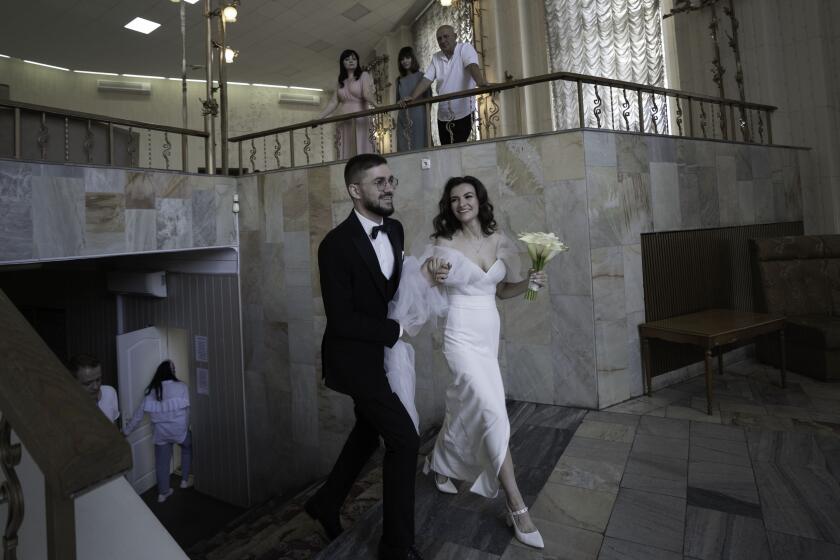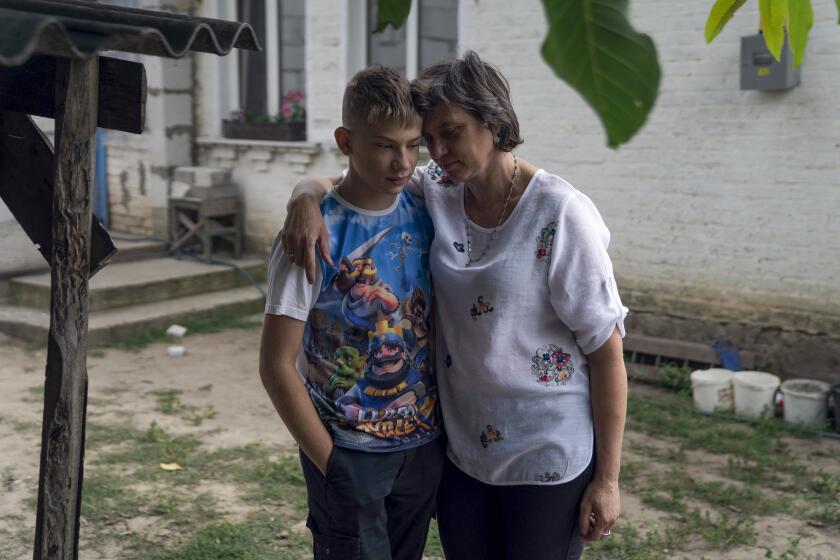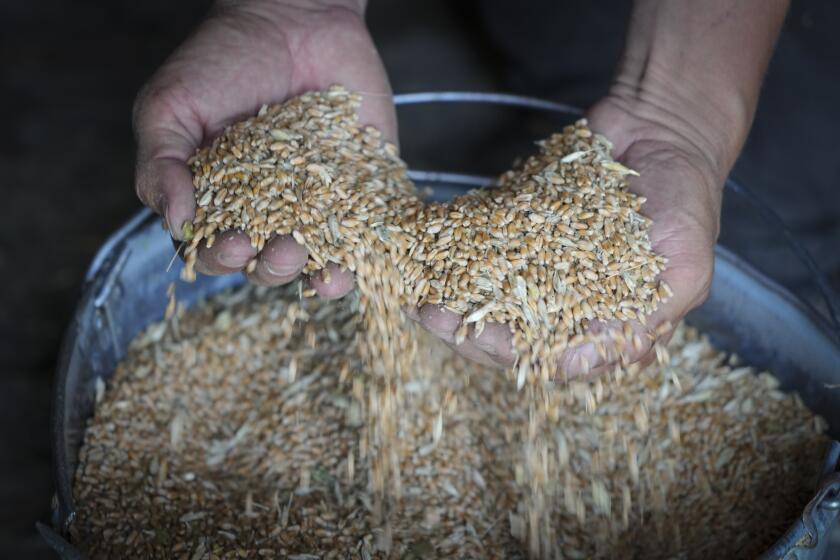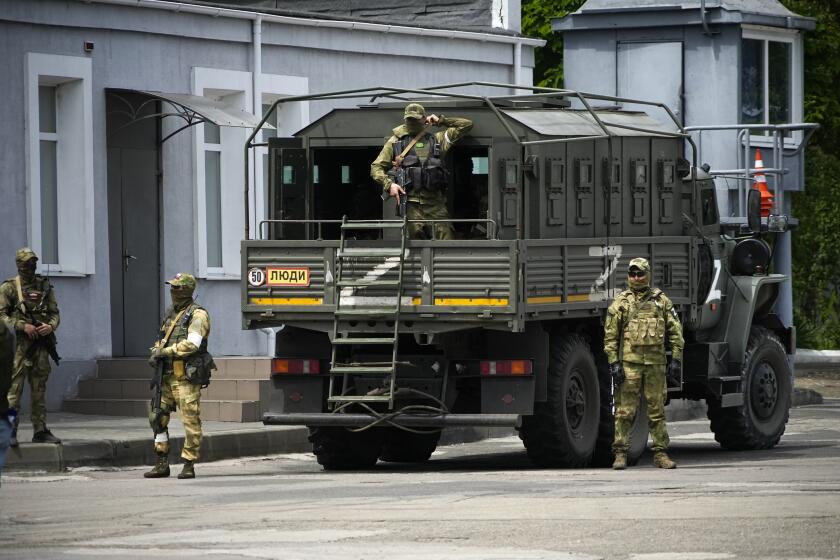As Russian shells rain down, Ukraine’s Zelensky meets with leaders of U.N. and Turkey
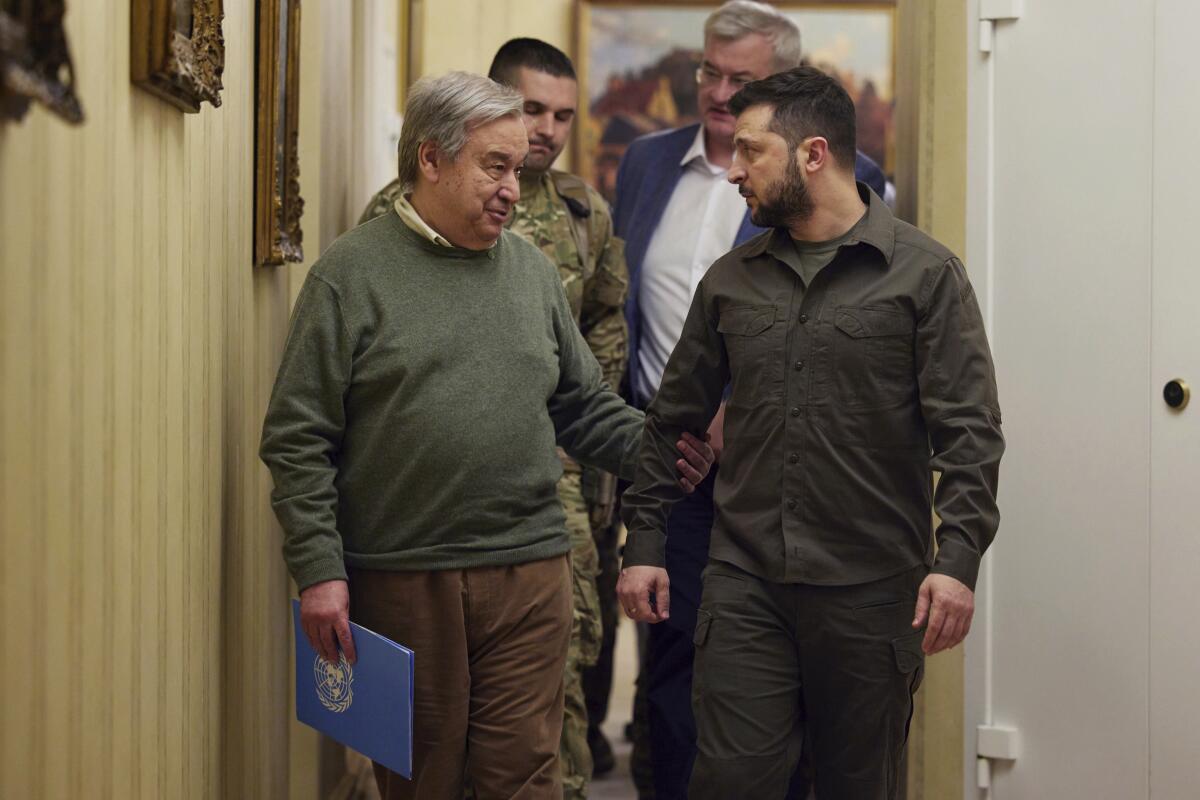
LVIV, Ukraine — Turkey’s president and the chief of the United Nations met with Ukrainian President Volodymyr Zelensky on Thursday in a high-stakes bid to ratchet down a war raging for nearly six months, boost desperately needed grain exports and secure the safety of Europe’s biggest nuclear power plant.
The gathering, held far from the front lines in the western Ukrainian city of Lviv, near the Polish border, marked the first visit to Ukraine by Turkish President Recep Tayyip Erdogan since the outbreak of the war and the second by U.N. Secretary-General António Guterres.
Erdogan has positioned himself as a go-between in efforts to stop the fighting. Although Turkey is a member of the North Atlantic Treaty Organization — which backs Ukraine in the war — its wobbly economy is reliant on Russia for trade, and the country has tried to steer a middle course.
At the meetings, Turkey agreed to help rebuild Ukraine’s infrastructure, including roads and bridges, and Zelensky asked Guterres to seek U.N. access to Ukrainian citizens deported to Russia, according to the Ukrainian president’s website. Zelensky also requested U.N. help in freeing captured Ukrainian soldiers and medics.
On the battlefield, meanwhile, at least 11 people were killed and 40 wounded in heavy Russian missile strikes on Ukraine’s Kharkiv region Wednesday night and Thursday morning, Ukrainian authorities said.
Russia’s military said it struck a base for foreign mercenaries in Kharkiv, killing 90. There was no immediate comment from the Ukrainian side.
Couples in Ukraine’s capital flock to tie the knot as war nears six-month mark.
Heightening international tensions, Russia deployed warplanes carrying state-of-the-art hypersonic missiles to the country’s Kaliningrad region, an enclave surrounded by two NATO nations.
The three leaders’ agenda included the Russian-controlled Zaporizhzhia nuclear plant in southern Ukraine. Moscow and Kyiv have accused each other of shelling the complex, and the fighting has raised fears of a nuclear catastrophe.
In his nightly video address Wednesday, Zelensky reiterated his demand that the Russian military leave the plant, emphasizing that “only absolute transparency and control of the situation” by, among others, the U.N.’s International Atomic Energy Agency could guarantee nuclear safety.
Zelensky and Guterres agreed Thursday on arrangements for an IAEA mission to the plant, the Ukrainian president’s website reported. It wasn’t immediately clear whether Russia would agree to those arrangements. Zelensky asked Guterres to ensure the safety of the plant, including its demilitarization.
Tymophiy, 12, lost his mother and stepfather in a hail of Russian fire and is now in the care of relatives. His diary is a record of fury and grief.
This month, Erdogan met in Russia with President Vladimir Putin to discuss the fighting. And last month, Turkey and the U.N. helped broker an agreement clearing the way for Ukraine to export 22 million tons of corn and other grain stuck in its Black Sea ports since Russia invaded Feb. 24. A separate memorandum between Russia and the U.N. aimed to clear roadblocks to shipments of Russian food and fertilizer to world markets.
The war and the blocked exports significantly exacerbated the global food crisis because Ukraine and Russia are major food suppliers. Developing countries have been hit particularly hard by shortages and high prices, and the U.N. has declared several African nations in danger of famine.
Yet even with the deal, only a trickle of Ukrainian grain exports has made it out. Turkey’s Defense Ministry said more than 622,000 tons of grain have been shipped from Ukrainian ports since the start of the Black Sea deal.
The discussions in Lviv on Thursday about an overall end to a war that has killed untold thousands and forced more than 10 million Ukrainians to flee their homes were not expected to yield anything substantive.
Russia’s invasion of Ukraine has upended the operations of what was the world’s fourth-largest grain exporter, with global consequences.
In March, Turkey hosted a round of talks between Russian and Ukrainian negotiators, who discussed a possible deal to end the hostilities. The talks fell apart after the meeting in Istanbul, with both sides blaming each other.
Erdogan has engaged in a delicate balancing act, maintaining good relations with Russia and Ukraine. Turkey has provided Ukraine with drones, which played a significant role in deterring a Russian advance early in the conflict, but it has refrained from joining Western sanctions against Russia over the war.
Facing a major economic crisis with inflation near 80%, Turkey increasingly relies on Russia for trade and tourism. Russian gas covers 45% of Turkish energy needs, and Russia’s atomic agency is building Turkey’s first nuclear power plant.
Sinan Ulgen of the Istanbul-based EDAM think tank characterized Turkey’s diplomatic policy as being “pro-Ukraine without being anti-Russia.”
Residents who have left the occupied Black Sea port city of Kherson tell of heavy-handed efforts by Russia to establish permanent control.
During their meeting in Sochi, Russia, this month, Putin and Erdogan agreed to bolster energy, financial and other ties between their countries, raising concerns in the West that Ankara could help Moscow bypass U.S. and European Union sanctions.
“Turkey believed that it did not have the luxury to totally alienate Russia,” Ulgen said, noting that Turkey also needed Russia’s support in Syria to avert a new refugee crisis. “Turkey has a dependence on Russia in the area of national security.”
He noted that Turkey has not recognized Russia’s 2014 annexation of the Crimea peninsula from Ukraine, but “at the same time it’s the only NATO country not to have implemented sanctions against Russia.”
More to Read
Sign up for Essential California
The most important California stories and recommendations in your inbox every morning.
You may occasionally receive promotional content from the Los Angeles Times.
